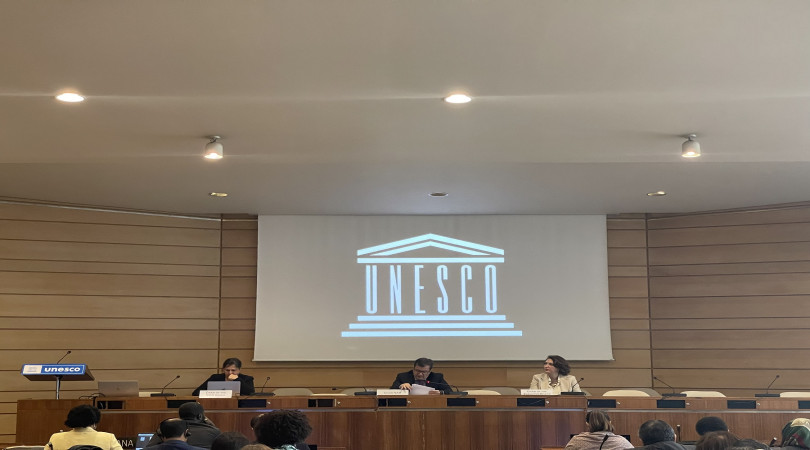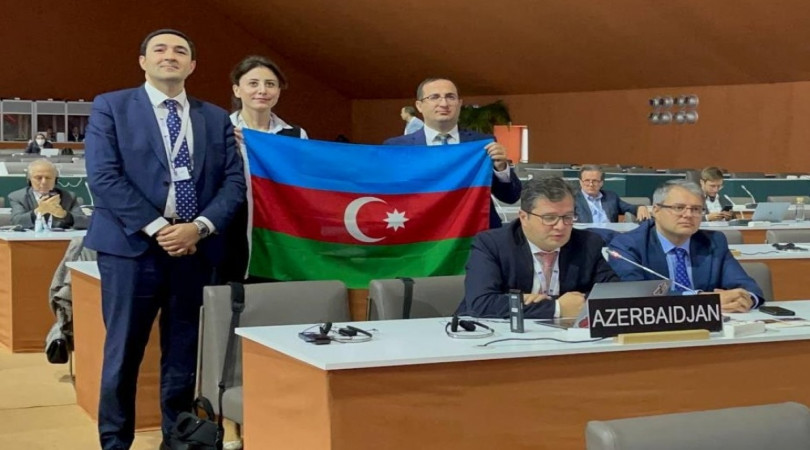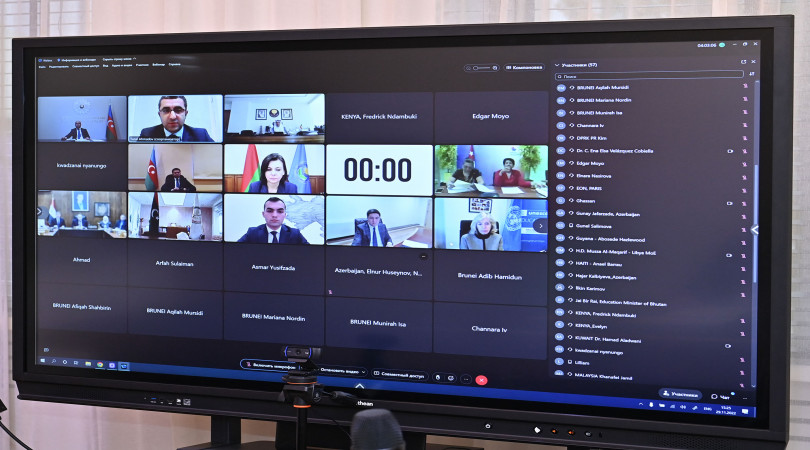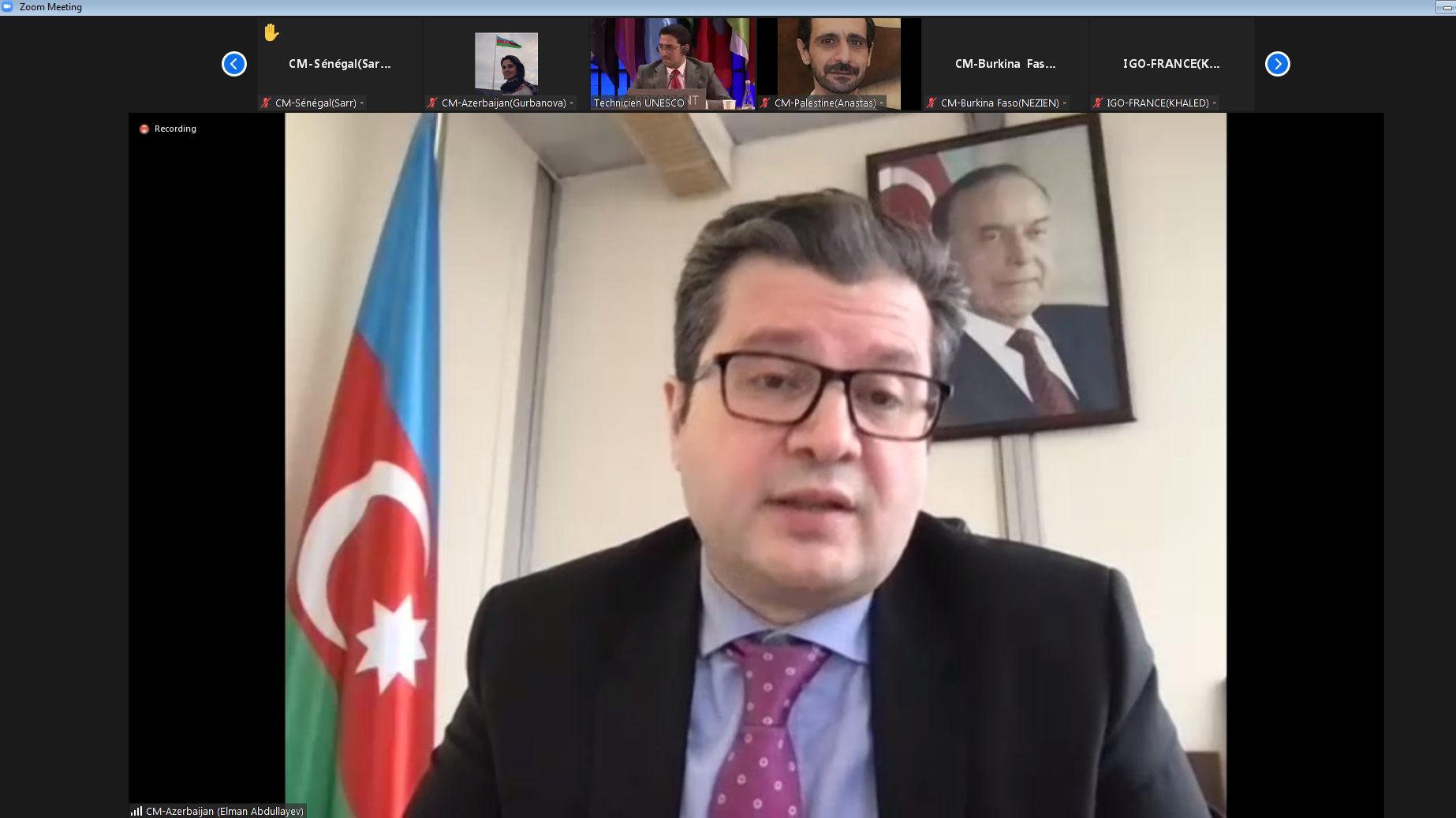The Shusha "Khari Bulbul" Music Festival was discussed at the UNESCO Session
The Permanent Delegate of the Republic of Azerbaijan to UNESCO Elman Abdullayev made a speech during the 15th session of the Intergovernmental Committee for the Protection and Promotion of the Diversity of Cultural Expressions of the 2005 Convention.
Following is the text of the whole speech:
***
Thank you, Mr. President!
Excellencies, Ladies and Gentlemen, Dear friends!
Allow me to greet you on behalf of the Delegation of Azerbaijan and express my sincere wishes of success to the work of the 15th session of the Intergovernmental Committee for the Protection and Promotion of the Diversity of Cultural Expressions of the 2005 Convention.
Recognizing that the creative economy involves, inter alia, knowledge-based economic activities and the interplay between human creativity and ideas, knowledge and technology, as well as cultural heritage and other individual and collective creative expressions, last year 2021 was declared the International Year of Creative Economy for Sustainable Development at the 74th UNGA.
The International Year of Creative Economy for Sustainable Development has come at a very relevant time as the COVID-19 pandemic has paralyzed the creative economy. In addition, the health crisis has revealed and worsened the existing vulnerabilities within the culture sector all over the world.
At the same time, the health crisis demonstrated how creativity is important to all of us, particularly for our well-being. In 2020 and 2021, people found consolation in movies, series, music, dance, art campaigns, etc. The cultural and creative sector has become the sounding board for humanity and has brought along the hope.
Like all countries around the world, Azerbaijan’s creative sector has been significantly impacted by COVID-19. We paused, we assessed, and then we revived and jumped back stronger than ever. We placed the creative economy centerstage within our economic mindset. To support creative industries in the country and ensure economic growth in this area, the sub-goal entitled "Dynamic development of culture and creative industries (CCI) and strengthening export potential in this area" has been identified under the priority "Economic growth" in "Azerbaijan 2030: National Priorities for Socio-Economic Development" announced in 2021 by the Order of the President of the Republic of Azerbaijan.
Moreover, last year Azerbaijan Creative Industries Federation was established with the support of the Ministry of Culture of the Republic of Azerbaijan. The Federation carries out awareness-raising activities by supporting the fertile ecosystem, necessary for the development of the Creative and Cultural Industries in Azerbaijan, promotes the production and export of creative products and services, supports public organizations in the field of creative industries as well as manages various activities within this framework as established in 2019 “Creative Azerbaijan” portal.
Inclusion of the gastronomic capital of Azerbaijan, a masterpiece of the cuisine, city of Lankaran in the UNESCO Network of Creative Cities is another success and historical achievement both for Azerbaijan and UNESCO in discovering the rich culture and cuisine of our region. Thereby, Lankaran became the third Azerbaijani city in this Network.
Dear friends,
In 2021, Khari Bulbul Music Festival once again welcomed talented musicians in Shusha, Azerbaijan`s cultural capital. The spectacular event was held for the first time since the liberation of Shusha from the occupation.
The festival brought together music groups of different nations living in Azerbaijan on Jydyr Plain. The concert presented a program of folk and classical music, featuring the true nature of diversity in Azerbaijan.
In October 2021, the Azerbaijan International Exhibition "Restoration, Reconstruction and Development of Karabakh – Rebuild Karabakh" was held at the Baku Expo Center.
As part of the international exhibition, a panel session dedicated to the global campaign "Peace for Culture" (Peace4Culture) was held. In the session entitled "Think not only about what culture can do for peace but also what peace can do for culture", discussions focused on how to make Karabakh a hub for creative industries.
In our digitalized world, smart city (& smart village) is a phrase everyone hears about a lot. It is not just a concept or a dream of the future. Today, there are many smart cities around the world and they are expanding rapidly. The major goal of a smart city is the optimization of city functions and promotion of economic growth while also improving the quality of life for citizens by using smart technologies and data analysis.
Recently, the President of Azerbaijan signed an order to prepare the Smart City and Smart Village Concept, and a working group was established representing various ministries.
With the liberation of our territories, a decree on measures to create a “green energy” zone there was also signed.
The signed decree envisaged the allocation of funds to attract a specialized international consulting company to develop an appropriate concept and master plan on the creation of a "green energy" zone on Azerbaijan's liberated territories.
In April, the President laid the foundation for the "smart village" project covering the villages of the Zangilan region of Azerbaijan.
We are happy to say that the liberated territories are first where the “smart city” concept – that has long been on the Agenda in Azerbaijan – is implemented.
Dear friends,
This year is very important in terms of Azerbaijan’s relations with UNESCO. In 2022, we are going to celebrate the 30th anniversary of our membership in UNESCO.
Throughout these 30 years, solid and sustainable partnership with UNESCO as well as strong commitment to support the Organization in various fields of its competence has been a priority for my country.
We have jointly organized numerous events and implemented different projects on cultural diversity and intercultural dialogue focusing on intersectoral approach such as Priority Africa, Gender Equality, and Education. We are confident that this approach will continue in further strengthening and expanding our bilateral Agenda.
Thank you!

















